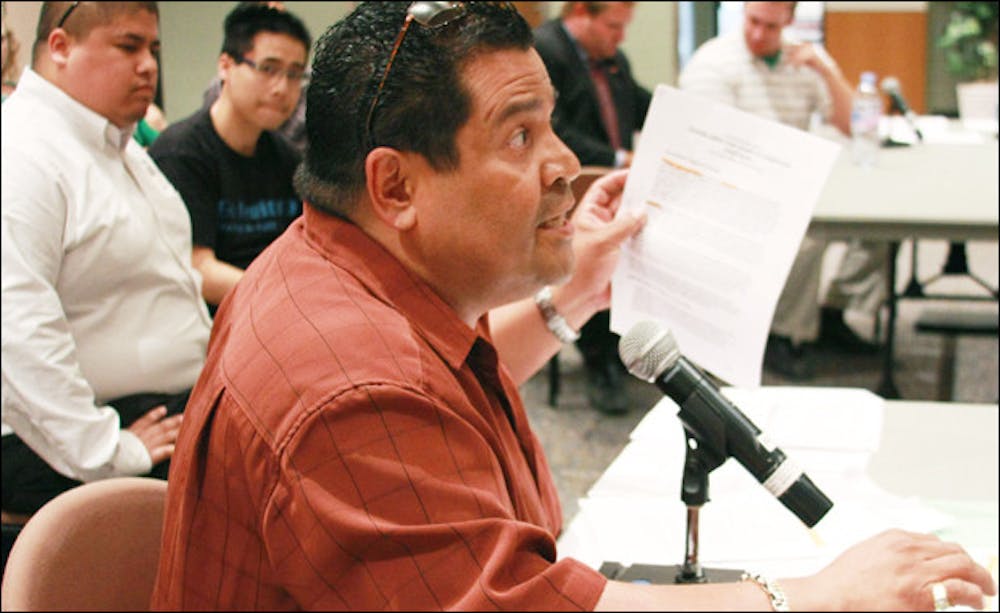The Associated Students of Arizona State University at the West campus disqualified presidential candidate Gary Galvan on 67 election violations, giving the presidency to history junior Andrew Clark.
The four-hour hearing played out like a courtroom drama, as what started as a simple presidential race quickly turned into a bitter battle.
The ASASUW Supreme Court case came after Clark filed a complaint that said Galvan was running a campaign in violation of election codes.
Although four counts were dismissed due to insufficient evidence, the other four counts served as sufficient evidence to disqualify Galvan from the race.
The four remaining counts were combined into two critical offenses — Galvan used Facebook as a campaigning tool to advertise his run for presidency well before the allotted time, and his campaign posters violated election code.
Clark said during the hearing that Galvan was playing with an unfair advantage. He claimed that putting more than 15 posters around the campus gave other students running for office an unfair opportunity.
Clark reported that Galvan posted more than 200 posters around campus over the course of the campaign.
“We need to fundamentally reform our election process,” Clark said. “We have to be fair and equal and we have to have the administration and students work on the same page.”
Galvan said no one told him he was in violation of any rules, and the allegations were biased.
Galvan echoed the same phrase in his defense both inside and outside the courtroom: “If it’s not written, it’s not a rule. If it’s not a rule, I didn’t break it,” Galvan said.
Galvan maintained that he did nothing wrong because he felt there was a miscommunication between ASASUW and the Office of Student Engagement which, Galvan said, gave him very different rules on poster regulations.
His claim was backed by Office of Student Engagement’s coordinator Paulita Velazquez Fernandez, who said ASASUW and her office did not communicate, and firm rules and guidelines for this year’s election were unclear.
“We are concerned about the Student Engagement name. There’s a miscommunication between student government guidelines and Student Engagement,” she said.
These breakdowns in communication, Galvan argued, were the reason he posted signs exceeding the 18-by-24-inch size limit.
“There was no clear definition about the handbills over the posters,” Galvan said. “My feeling is that [the justices] used their own interpretation.”
Many students felt that Clark had taken his case too far, and that both candidates could have settled their dispute without taking the case to the Supreme Court. About 20 people attended the trial.
“It’s a good case,” said Nuha Sarraj, a political science sophomore at the West campus, “but I don’t think Andrew should have gone to trial. I wanted both of them to run.”
On the other hand, some of Clark’s supporters agreed with Galvan’s disqualification for his overbearing display of posters and election antics.
“The sheer amount of posters is an eyesore to the student body, and action should be taken,” said Catherine Imlay, a communications sophomore.
With this victory, Clark said he plans to run his presidency to increase affordability for students.
“We need to have education worth the money we pay for it,” he said.
Reach the reporter at luis.c.lopez@asu.edu.




